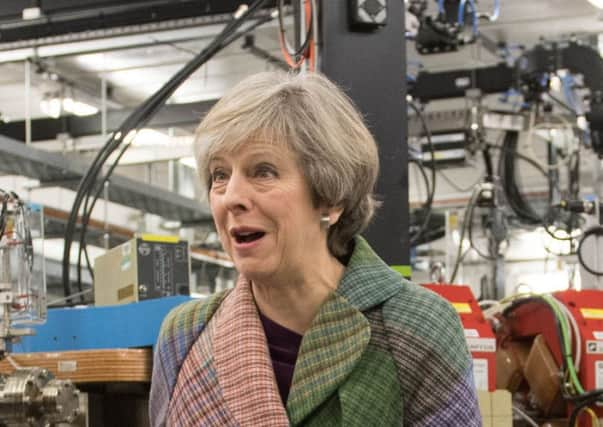Martin Flanagan: Will PM's strategy stop rise of the robots?
This article contains affiliate links. We may earn a small commission on items purchased through this article, but that does not affect our editorial judgement.


That gave way to Tony Blair’s Third Way whereby the circle was attempted to be squared between corporate profits and social fairness. The financial crash and resulting great Recession brought the Tories back to power, and after a period being tempered by Liberal Democrat compassion stabilisers, Cameron and Osborne took complete control of the car and laissez-faire largely presided again in terms of overarching industrial philosophies. Whitehall picking winners was out.
Theresa May has now unveiled her new industrial strategy, arguably a 360-degree turn and come back to a government “not just stepping back and leaving business to get on with the job, but stepping up to a new, active role that backs business and ensures more people in all corners of the country share in the benefits of its success”.
Advertisement
Hide AdAdvertisement
Hide AdMay has called on Scottish businesses and workers to help shape the strategy in the ensuing consultation, but it does feel that the still understandably undeveloped strategy is pressing a lot of the normal buttons such as small business pump-priming, addressing the skills and productivity gap, and stimulating Britain’s already outperforming R&D sector.
Perhaps most tangibly, science, technology, engineering and mathematics (the so-called Stem subjects) will receive greater encouragement.
In a relatively fuzzy way, May suggests the strategy may be even more necessary in the wake of a Brexit and a new self-styled global Britain.
Another significant pillar is that the PM wants business peers to collaborate on tackling industry-specific challengers. The quid pro quo will be government support on regulation, trade and research.
However, is there something of generals fighting the last war about it all? After the agriculture-to-industry revolution of Victorian times and the industry-to-technology revolution of recent decades, next up is said to be the robot revolution that could leave millions of workers jobless.
Will the march of artificial intelligence render a more interventionist government strategy irrelevant?
